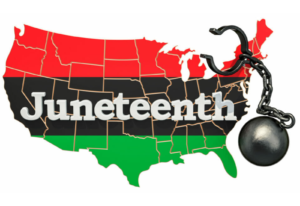One of the best insurance policies a cannabis business can get is a written contract. Paying a lawyer a little bit up front can save hundreds of thousands when things go south. A lot of folks in the cannabis industry are still doing deals on a handshake basis (you can see some of our older posts on handshake deals below). In this post, I’ll outline a few of the best reasons why written contracts beat handshake deals 99% (if not 100% of the time).
#1 The statute of frauds!!!
The Statute of Frauds is a legal doctrine that requires certain types of contracts to be in writing. If they are not in writing, they are generally not enforceable. For example, California’s Statute of Frauds requires written contracts for, among other things, agreements that cannot be performed within a year, for leases for a year or longer, and for loans over $100,000 in certain cases. If the parties try to do a handshake deal for something within the Statute of Frauds, one or both of them may be in for a rude awakening if there is ever a contract dispute if the court refuses to enforce the agreement.
#2 Cogently memorializing deal terms
In very simple contracts, a written contract may not be necessary. For example, imagine the following agreement: “I will mow your lawn on Saturday at 10:00 AM for $20.” I say “may” here because even agreements with relatively basic terms like this one could be subject to different interpretation – how short will the grass be mowed, how long will it take, will the homeowner provide the mower, etc.?
But most agreements in the cannabis industry are much more complex than this. Imagine an agreement to buy one single delivery of cannabis products. The parties would need to agree at least on (1) what type(s) of products would be purchased, (2) how many units of each type of product would be purchased, (3) when the products would be delivered, and (4) how the products would be delivered. But in many purchase arrangements, there are a host of other things that parties put in a written contract, such as: (5) inspection and rejection procedures, (6) recall procedures, (7) product warranties, (8) indemnification provisions, (9) liability limitations, (10) dispute resolution provisions, and so on. And keep in mind that this only relates to one-time purchases. In most cases, cannabis transactions are much more complex than this.
The human memory is only capable of storing so much information in a competent way. It is just not possible to accurately remember each deal term. In a complex arrangement, the parties may recall the main terms but it is inevitable that there will be disagreements based on inability to recollect key deal points.
#3 Dispute resolution
Do you want to litigate a cannabis dispute in federal court? Probably not. If you don’t have a written contract and there is a reason for the dispute to be removed to federal court, it’s going to be removed.
Do you want a dispute in arbitration? If you don’t have a written contract, you don’t get to arbitration.
Do you want the prevailing party in a dispute to recover its attorneys’ fees? If you don’t have a written contract, that’s not going to happen (unless there are some other claims beyond breach of contract where the winner gets its fees).
The bottom line here is that it is easy to set the parameters for dispute resolution in a written contract. Conversely, without a written contract, the parties have to chance it and may end up shooting themselves in the foot.
#4 Indemnification
If you’re not familiar with indemnification, let’s go back to the purchase example. Say a retailer purchases edibles from a manufacturer, and customers get sick when they eat the edibles. And say those customers sue the retailer. The retailer didn’t make the edibles, so it would want the manufacturer to foot the bill for its defense and any damages that are awarded. This is called “indemnification.” In some cases, parties can seek indemnification without a written contract. But it is much clearer and easier if there is a written contract provision that spells out indemnification procedures and coverage.
Indemnification provisions are usually among the most heavily negotiated contractual provisions, and for good reason. They can be the difference between a business-ending lawsuit and survival. This is yet another reason why written contracts with clear indemnification provisions are such a good idea.
#5 Limitations of liability
If you’ve ever looked at a written contract, you’ve probably seen a provision about halfway through in all caps with a heading that reads, “LIMITATION OF LIABILITY.” As the name suggests, these provisions are intended to narrow or eliminate liabilities of one or both parties. They generally include provisions that carve out things like consequential and incidental damages (i.e., damages that are not a direct result of a breach) and punitive damages (i.e., damages that are intended to punish a wrongdoer). But limitations of liability may also place caps on one or both parties’ damages, which can be a big advantage in a dispute. Again, without a written contract, a party won’t be able to shield itself from many liabilities.
As mentioned, here’s a list of some of our older posts on problems with handshake deals:

























